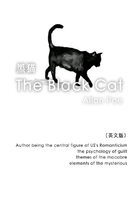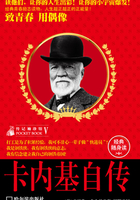The part of the Palace to which my mistress Antonina went was the vestibule, called the Brazen House. Its roof is of brass tiles, and there is an image of Christ over the Gate. Here the four battalions of the Imperial Guards are quartered; here also are to be found the Throne-rooms and State banqueting halls, and the State prison for men and women accused of treason. The other principal buildings of the Palace are the Daphne, where most of the Imperial business is transacted, and the Sigma, where the Emperor and Empress have their sleeping-quarters, and the Residence of the Eunuchs. There is also a little square palace with a pyramidal roof, built of purple-speckled marble-the others are of white, yellow, red, or green marble-where all Empresses must, by an ancient rule, be brought to bed of their children, who are then said to be 'born in the purple'. Theodora bore Justinian a child here, a girl; but she died in infancy. The Palace and its annexes and grounds cover one-tenth of the total area of the City, and occupy a triangle of land between the Bosphorus and the waters of the Sea of Marmora.
My mistress was kept waiting for hours in the reception lobby of the Brazen House, a small, stuffy apartment, and questioned by a number of important and unimportant people, mostly eunuchs, each in turn trying to break her persistent silence. The Empress, she was continually assured, refused to see claimants unless they expressly stated their business in detail. My mistress answered that if the Empress knew that they were keeping away so important a petitioner, she would punish them for their interference. Surely they could judge from the seriousness of her person that she was not one to petition the Empress idly?
She was at length successful. They admitted her to Theodora's silk-hung audience chamber at the second audience, which began at two o'clock. She had with her, besides the basket, the children Photius and Martha; and they were cross and tearful because they had missed their dinner, having been kept standing about in the reception lobby since before eight o'clock. My mistress recognized one or two of the officials and Guards officers from her club-house days, but took care that no one should recognize her. The handsome gold cross on her breast and her widow's weeds were a sufficient disguise; and she had grown a good deal plumper since her acrobatic dancing days. She had been ten years away from this part of the world.
My mistress watched the preliminaries of the audience, which Theodora conducted at a different hour from Justinian's, so that the chief Officers of State should be free to assist her. A priest opened proceedings with a short prayer, and a few responses were sung, during which Theodora trimmed her nails with a tiny knife and looked contemptuous. Next, retired officials and women of note came up one by one to her throne very reverently, to kiss the hem of her robe or the instep of her feet. She greeted them coldly. Then the first petitioners were announced. Theodora listened to some attentively and to some impatiently with bent brows. Her decisions were short and pointed. 'A present of gold to this woman', 'This plea must be referred to His Clemency, the Emperor', 'Take the impudent fellow out and whip him.' Everyone seemed to stand in awe of Theodora.
Yet she had not changed at all, my mistress thought. At last Narses, the eunuch Chamberlain, announced her apologetically to Theodora: 'Antonina, widow of Such-and-Such, silk-merchant, late Treasurer of the Blue faction at Antioch: with a personal plea. Obstinately refuses to state her business; insists, however, that it is of importance to the State and to your Resplendency.'
My mistress advanced and made a deep obeisance.
Theodora listened quizzically, her head tilted a little in a familiar attitude. My mistress almost forgot herself, almost sprang forward to embrace her old friend; tears started to her eyes. She was very fond of Theodora, and felt a deep pride in her as she sat there on a golden throne with such grace and assurance.
Theodora addressed my mistress. 'That is a pretty little girl. Is she your own?'
'Yes, Resplendency.'
'Name?'
'Martha, Resplendency.'
'Why Martha?'
'A Christian name, Majesty. The child is baptized.'
'But why not Mary? Or Elizabeth? Or Dorcas? Or Ann? Or Zoe?'
My mistress grew bolder: 'I named her Martha after the sister of that Lazarus who was raised from the dead. Martha, I am told, preferred the practical routine of household life to taking part in perhaps heretical religious discussion.'
The priests were scandalized, but Theodora laughed softly and said to the Major-Domo: 'Clear the room, and be quick about it. I wish to have private conversation with this intelligent and pious widow.'
Before the last of the petitioners and Guards were well out of the room the Empress had descended from the throne, run towards Antonina, and was embracing her tenderly, weeping for pleasure. 'O my Antonina, I thought you were dead. They told me that you were killed in the earthquake at Antioch! I did not recognize you until you spoke. Why did you not seek me out before? You were the best friend I ever had, dearest Antonina.'
My mistress asked for forgiveness, explaining that she had not been sure whether Theodora wished to see old associates, now that her position had become so exalted.
'That was unjust of you,' Theodora said, embracing her again. She fingered the cross at my mistress's breast, 'So you have turned Christian too? I should never have thought it of you-you pagan, you witch!'
My mistress's confidence had returned completely. 'I learned it from Theodora,' she joked.
Theodora slapped her lightly, and assumed a mock-scowl. My mistress, with no least feeling of anxiety or embarrassment left now, remarked that the children had had nothing to eat since breakfast. Theodora summoned the Major-Domo again and told him to punish the person responsible for starving her guests. She also said that the audience would not be resumed that afternoon, and that the remaining petitioners must return on the next day. Then she took my mistress and her children to her private room, off the banqueting hall, where a wonderful meal was served from gold plate encrusted with amethysts. There followed easy, placid talk of old times. My mistress learned that Indaro had made a good marriage and gone to live at Smyrna, but that Chrysomallo was still here-she would be summoned presently. And what did my mistress say to becoming a Lady of the Bedchamber, with patrician rank, like Chrysomallo, and living at the Palace?
My mistress did not dare to ask Theodora about her relations with Justinian, but Theodora told her a good deal of her own accord. 'He is a clever fellow, cowardly, vacillating, manageable. The one difficulty I have with him is that he is religious, guiltily religious, and anxious, above all things, to keep his soul clear of any taint of heresy. He and I have a compact to be known to disagree on theological questions but not to pull in opposite directions. This keeps the general peace and brings intriguers to us from both sides, the Orthodox and the heretic; we pool our information.'
'And Cappadocian John?' my mistress asked.
'Our oath still holds.'
'To reduce him to utter beggary?'
'Presently, presently. Antonina, my dear friend, you will marry again, of course?'
'Why not?'
'I have a husband in mind for you.'
'O Theodora, a suitable one, I hope?'
'A man who is altogether too pious and upright, a man who avoids marriage by all manner of excuses-afraid, it seems, of falling into sin by making the wrong choice. I wish to do both him and you a service.'
'A patrician?'
'A patrician. Young, handsome, a fine soldier-the finest cavalry-leader we possess.'
My mistress began to laugh. 'O Theodora, you and I have evidently hit on the same choice for me. But what if Belisarius refuses?'
'He will not refuse. It will come as an order from me, in the Emperor's name.'
In her joy my mistress remembered her basket. She said: 'Theodora, this is the luckiest day in my life. Yet I have it in my power to make a present to the Emperor and yourself which, I believe, will repay your kindness to me a hundred times over.'
She took out a spray of mulberry and showed Theodora three caterpillars feeding on it. 'The secret of silk,' she said.
The Empress looked incredulous. But then my mistress showed her the silk-cocoons in which the caterpillars, when wishing to become moths, are accustomed to wrap themselves; and told the story of how she came by this precious merchandise, as follows.
'My late husband happened to be a Nestorian in his religious opinions, because he was born at Antioch, where the heresy originated.'-She did not need to explain to Theodora what Nestorianism was, but to my readers let me explain that it was merely another of those various opinions concerning the nature of the Son, and a logical rather than a mystical creed. The Nestorians hold that the Son had two complete natures, human and divine, and that each was complete, and each therefore personal, personality being an essential part of a complete nature; and that in consequence one could not think of these two natures as united (which was the Orthodox view) but only as conjoined. As for the divine nature of the Son, this was an indwelling of the Father in Him, comparable with the indwelling of the Father in the Saints; though the Saints had it to a far lesser degree. This view was anathematized as lessening the dignity of the Son, and as approaching dangerously near the Plotinian heresy, which brutally denies to the Son any divinity whatsoever.
'One day two Nestorian monks came secretly to my husband and complained that their monastery in the Lebanon had been closed by order of the Patriarch of Antioch and that they were now cast adrift on the world. They proposed to go to some far-off country-India or Abyssinia or China-and preach the word of God there. But they had no money, and their sandals were already worn out and their robes in rags, and alms scarce. So my husband comforted them and arranged that they should join one of his caravans going to Persia, and gave them money to proceed, if they wished, as far as China, where the mission-field was wide and where a Nestorian community had already settled. So they praised God and thanked him and inquired whether they could do anything for him in return. He replied, half in jest: "Pray for me every morning and evening and, when you return, bring back the secret of silk; for that will earn you religious freedom for the rest of your lives."
'These simple men went to China, suffering much by the way, and stayed there for a year, preaching the gospel. They trusted that the gift of tongues would descend upon them as upon the primitive Apostles, so that they could make themselves understood by the natives. But it was not granted; and the Chinese language is most difficult to learn by human means, consisting, as it does, of very few words, which change sense continually according to the accent with which they are spoken. These monks, therefore, could only sigh and frown and point to the sky and speak earnestly in their own Syrian dialect, as they went from village to village. Of the inhabitants some laughed, some pitied, some took them for holy men and gave them alms.
'One day they passed through an unguarded mulberry plantation and saw women in a shed near by unwinding silk from cocoons and winding it up again in skeins. They stole a cocoon, unravelled it, and found a caterpillar inside, resembling the caterpillars that they had noticed as swarming on the mulberry leaves, and guessed that the cycle must be: grub, caterpillar, cocoon, moth, egg, and grub again. They waited in the neighbourhood until it was the season of moths; then they returned to the plantation and collected what they deduced to be silkworm eggs and hid them in a hollow stalk of bamboo-as the legend is that Prometheus once hid the fire stolen from heaven in a hollow stalk of fennel. Having sealed the stalk tightly with wax, they set out on the long journey homewards, returning by way of Persia. They arrived at Antioch one year and two months after the sealing up of the eggs, but these hatched out after being laid in a warm midden; the grubs fed on mulberry leaves which the monks had ready for them. Some cocoons, see, have already been formed.'
You may imagine with what delight Theodora greeted my mistress's story. The monks had attentively observed the routine of the silk-farming industry, and it was clear that with these small beginnings a silk industry could be started which would eventually make us independent not only of Persia but of China. Factories for weaving and dyeing the raw silks were already established in many of our cities. Theodora promoted the monks to be abbots of Orthodox monasteries, and wrote a letter to the Patriarch of Antioch informing him that they were under her protection. These two monasteries became silk-farms, with forests of young mulberry trees, and the abbots, though not recanting their Nestorian views, were too busily employed to argue fine points of dogma with the monks. The scandals of heresy are the product of idleness.
Soon Justinian made King Kobad a present of a costly silk cloak dyed in Tyrian purple which, he pretended in the accompanying letter, was made by Syrian silkworms; and sent cocoons of silkworms in proof. This was a great vexation to Kobad, who had also recently come to know the secret of silk: it had been communicated to him by one of his vassals who married a Chinese princess-she had concealed a batch of eggs in her turban upon leaving her own country. But he had made no attempt to exploit his knowledge. It was safer to let things continue as before, making his middleman's profits on the sale of silk to the West cover the expense of his own large consumption, rather than inaugurate a new industry and risk its being observed and copied by ourselves. Now the worst had happened: his monopoly was broken and the higher the price he now asked for silk, the greater would be the encouragement to our Syrian silk-farmers. He therefore informed the Chinese that both Persia and Constantinople knew the secret of silk, and did not wish to pay such high prices abroad for what they could raise cheaply at home. The price fell somewhat, but even now our silk-farms cannot clothe us without help from China and Persia; for the rearing of silkworms is by no means a simple matter. Justinian made the sale and manufacture of silk a State monopoly.
Within two days of her arrival at Court my mistress Antonina was created a patrician, the Illustrious Lady Antonina of the Bedchamber; and was presented to Justinian, who was condescending to her, but pretended not to know her. Meanwhile she had been involved in an alarming adventure. On the evening of the day that she had this audience with Theodora, she left the Palace and went on foot to the nearest point of the Bosphorus where she could hire a boat to row her home past the docks of the Golden Horn. But a burly-looking, black-bearded fellow in a merchant's cap stopped her in the street. He drew her aside and asked whether her name was Antonina; for if so he must have a word with her. 'I am an official from the Palace,' he said.
My mistress refused to go with him into a nearby house, as he suggested, because the man might be an impostor who intended in reality to carry her and her children off, after stupefying them, and sell them as slaves to some chieftain of Colchis or the Crimea or some other wild region. There was considerable traffic in kidnapped women and children to remote parts of the Black Sea coast. She replied: 'No, come into this church with me. We can talk privately there.'
He agreed, and they went in. My mistress said: 'Now show me your warrant. How can I be sure that you are from the Palace?'
He drew out a commission written in purple ink, which is only used by the Emperor. It was to the effect that the loyal and beloved patrician, the Distinguished So-and-So (but he held his finger over the name) was commissioned as a superintendent of secret police in the City of Constantinople by the grace of His Most Sacred Clemency the Emperor Justinian. My mistress read it only in the flickering light of the long, scented candles burning in a draught before the shrine of some martyred monk or other; but it appeared genuine.
'Well, what do you want of me?' she asked.
'An account of everything that passed between yourself and the Empress this afternoon.'
She laughed, resolved not to display the least fear. 'It would surely be better to ask the Empress. I have a wretched memory for royal interviews.'
'Prison and a little torture would improve it,' he threatened. 'And there is another more important matter which His Clemency is anxious to learn about, and which you as a former associate of the Empress…'
My mistress interrupted: 'If the Empress has been gracious enough to recall certain trivial services of mine to her in the years before she was raised to the purple, that is her affair. I have no recollection of them myself.'
He lowered his voice and said: 'No hedging, I beg of you. Is it a fact that the Empress had an illegitimate son in her theatrical days by a Red Sea merchant who visited frequently at your club-house?'
My mistress raised a cry, and two monks who were hovering in the shadows darted forward. 'This man is blaspheming the Christ,' she said. 'He is an idolator, a Manichee, a vile sodomite, and I do not know what else. Protect me from him, you pious monks!'
The Superintendent flourished his commission in their faces. 'The woman lies,' he said. 'I am questioning her in the Emperor's name. See, I am a superintendent of police. Go away, holy brothers, and leave me to conduct this inquiry in private. I have soldiers waiting outside.'
My mistress asked the monks: 'On whom does this church of St Mary Magdalene depend for its endowments? On His Sacred Clemency the Emperor, or on Her Sacred Resplendency the Empress?'
They made a reverence as they acknowledged their indebtedness to Theodora. 'I am in the service of the Empress,' she warned them. Then she asked the Superintendent, stretching out her forefinger: 'Do you recognize this ring?' It was a small gold ring with a blue human eye pictured on the enamel, and in the iris of the eye was a tiny golden initial, a capital Theta. Theodora had just given it to my mistress, as a token that she was now one of her trusted people.
He attempted to pull it from her finger. My mistress struggled with him and kicked him in the groin and escaped. She ran with her children for sanctuary to the high altar, where he did not dare pursue her. Then she said to the younger of the two monks: 'Run to the Palace, brother in Christ, and let the Empress know at once that the woman of the mulberry leaves is in danger here in your church.'
The terrified monk excused himself: 'I am not permitted to leave this church without the orders of my Superior, and he is attending mass in the Cathedral.'
My mistress asked: 'Are you more afraid of the Empress or of your Superior? Off now, and the sooner you start, the sooner you will be back.'
He hitched up his gown and ran. Then the Superintendent sullenly left the church, and said: 'You will fall under His Clemency's grave displeasure.'
My mistress replied: 'Or perhaps under the pleasure of Her Resplendency.'
Soon a full company of Guards came to escort my mistress back in safety to the Palace, where she told Theodora something of what had happened, but not all: she discreetly made no mention of the question as to the illegitimate son. Nevertheless, Theodora looked grave. She asked for a description of the man, but his burliness and a black beard and a slight provincial accent were his only distinguishable features.
'He is none of the Emperor's usual agents,' she said. 'Either he is someone with a secret commission, unknown to me, or else he is an impostor. I will find out soon enough.'
But she could not trace him, though she examined the monks and obtained from them a description of him. One monk suggested that his accent was Cilician, but my mistress did not agree with him on this point.
My mistress had no further encounter with this supposed superintendent of police, but became aware that her movements were constantly watched. Her house in Blachernae, before she gave it up, was broken into and her box of private papers rifled; fortunately none of these was in the least compromising, either morally or politically. My mistress had not, I admit, been living a particularly chaste life of late; and having been in conflict with the law in the matter of some property of her husband's, she had been obliged to buy justice in a lower court from an official of the Green faction who controlled it. Otherwise, her conscience was clear, and no record of any of her lapses existed in writing. She was a woman who never wrote or preserved love-letters, never asked or gave receipts for money where the transaction was questionable. But she soon realized that she must behave with even greater circumspection than usual if she would avoid being harmed by secret enemies who were apparently trying to strike through her at Theodora.
My mistress felt the full force of their assault one Holy Day. After attending Theodora's morning audience she followed dose behind her in the usual Royal procession to the Cathedral Church of St Sophia. (This was the old church, which was a splendid building, though not to be compared with the present church on the same site, which is acknowledged to be the finest sacred edifice in the whole world.) She was dressed in her best flowered silks, with all the scarlet and purple additions to which her rank as the Illustrious Antonina now entitled her, and wore her heaviest and most exquisite jewellery-part of it a present from Theodora, who was, in a literal sense, 'as generous as her mouth was wide'. Naturally she also wore an exquisitely curled and coiled auburn wig, with a number of ringlets bobbing pleasantly on her neck, to supplement her own good but not profuse auburn hair. My mistress always enjoyed these processions-unless of course it was raining; even those to distant churches on the name-days of the saint to which they are dedicated. For on such occasions the Superintendent of City Streets has the roadways and pavements swept; and the whole population wean festival clothes and appears with clean faces and hands and feet and casts itself down in adoration as the Emperor and Empress pass; and embroidered cloths hang from the windows, and there are ingenious decorations everywhere of myrtle, ivy, rosemary, box, and meadow-flowers, forming letters that couple the Imperial honour with that of the Saint. Gay marching hymns are chanted by the monks in the procession, and throughout the City is heard a rhythmic drum of mallets on sounding-boards, summoning the faithful to prayer; each church has its different characteristic rhythm.
On this occasion my mistress was in her customary good humour as she reached St Sophia's. Passing through the line of penitents in the vestibule, who are cut off from the Eucharist and may approach no nearer, she climbed the stairs and sat down next to the Lady Chrysomallo, in the front row of the gallery-seats, which were reserved for women. She leaned over the carved sill and began signalling merrily to her male friends in the nave below; for a great deal of intimate information can be exchanged thus with the aid of hand and kerchief At St Sophia's, as at most fashionable churches, the sacred nature of the service is not taken over-seriously: clothes and gossip provide the greatest interest in the gallery, and a buzz of political or religious argument from the nave invariably drowns the reading of the Scriptures. However, the singing of the eunuch choirmen is usually listened to with some respect, and nearly everyone joins in the chanting of the General Confession and other prayers; and if the sermon is being preached by an energetic preacher it is often greeted with appreciative clapping and laughter or with earnest hissing. The Eucharist is dispensed at the conclusion, and then the blessing spoken, and out we go again. 'Against such civilized and sociable Christian functions it would be foolish to bear any grudge,' my mistress used to say-'they are merely a quiet variety of the Theatre performances.'
The preacher on that day was a bishop whom we had not heard before, but who was known to be greatly admired as a theologian by Justinian. He held some Italian see or other, and was good-looking in rather a foppish way. He took for his text the verses in the first epistle of the Apostle Paul to the Corinthians, which lay down that men should wear their hair short and not pray with their heads covered; but that women should wear their hair long and not pray with their heads uncovered. He dwelt most gravely on the verse: 'For if a woman be not covered, let her also be shorn'; which was to say that if a woman attended service in a church without a head-covering she should be punished by having her hair clipped close to her head. The audience settled down to an entertaining homily, though not without nervous looks on many faces, male and female. For there was many a woman there whose head-covering consisted of no more than a spray of jewels, and many a man whose hair was cut in the Hunnish mode then fashionable-clipping the front part off as far back as the temples and leaving the back hair to grow down the shoulders. What if the Emperor or Empress should be persuaded by this bishop to take severe steps against the law-breakers? Nevertheless, it was not these people whom the Bishop intended to denounce: for the sermon, most illogically, was directed against women who wore wigs. As though a wig were not a head-covering of the most complicated and effective sort!
He started gently in a musical voice with general thoughts on the subject of women's hair, appreciatively quoting the pagan poets of both languages-to make it quite clear to us that he was a man of polite education, not an ignorant, narrow-minded, monastery-bred preacher. He cited Ovid as having said this, and Meleager that, in praise of a fine head of hair. Nor were these praises anti-scriptural, he pointed out: for the Apostle Paul himself, in the very passage from which the text was derived, had written: 'If a woman have long hair it is a glory to her.' And in praising length the Apostle no doubt meant to praise strength and glossiness, for no hair that is not strong or glossy can grow to commendable length. 'But,' he said, putting tremendous emphasis on the word, 'But, during any religious ceremony and on any but the most intimate private occasions, this long, strong, glossy, beautiful hair must be decently covered, out of respect for the angels.'
For the Christian angels-he proceeded to explain, as if he had had a long and troublesome acquaintance with them-are all eunuchs; they look down from Heaven on human worshippers, and from that vertical angle see little but heads and shoulders. 'Any honest person who has had any experience of eunuchs,' he went on-with a sly glance at the choir and at the long aisle reserved for eunuchs of the Civil Service and for personal eunuchs attached to prominent courtiers, such as myself-'Any such honest person will support me when I assert that the lack of the customary male organs of generation does not, as might be supposed, free the heart from carnal affections. Not by any means! I have indeed seldom known a eunuch who could confess truly to having no tender feelings for women's hands and eyes and feet and hair-oh, but especially for their hair! I know many a rich and learned eunuch who spends his leisure time, wantonly and shamefully, in the slow combing of the hair of some frivolous woman of his household! You may laugh, my sisters, but you know it is so, and it is a great sin that you are committing if you pander thus to the ineffectual lusts of the castrated. Angels are no less subject to temptation than eunuchs: the Arch-Fiend himself was an angel who fell from Grace-was it perhaps partly from delight in the hair of some daughter of Earth? Out of respect therefore for these blessed but beauty-loving angels, who must not be distracted from their religious duty of perpetual hosannas and hallelujahs, it is the first duty of all Christian women with fine hair to keep it securely covered. It is surely evil enough to wean human worshippers from their devotions by an ill-timed display of the crowning glory of women, without seeking to drag angels down to earth and thus add to the race of demons-already numerous enough, God knows!'
But the pagan poets, even-he quoted Martial, Propertius, and Juvenal-had written with the utmost horror of women who wore hair that was not their own. Wigs were thus proved to be an offence not only against the Laws of the Church, but against secular canons of beauty and good taste. 'As for the Orthodox view of the Holy Fathers, it could not be clearer, and may be summarized as follows. Male wigs are in general designed to cover baldness: they are therefore in the nature of a skull-cap and constitute a covering, and are therefore anathema. Women's wigs, however (for a bald woman is a rarity), are designed to add to the hair already in existence on their heads, to heighten and improve its effect: they therefore do not constitute a covering, and are anathema. The righteous thunders of the Church, Council after Council, have always been directed at wigs of both sexes: both the cowardly male wig and the immodest female wig. Tertullian has said-but what has Tertullian not said against these stitched and coiled monstrosities of wigs? He has said, amongst other things, that all personal disguise is adultery before God. All wigs, paint, powder, masks, false bosoms are disguises and inventions of the devil.
'Moreover, my erring sisters,' the Bishop proceeded, suddenly pointing very rudely at Chrysomallo and my mistress, whose wigs, after Theodora's, were the two most elegant monstrosities in all St Sophia's that day, 'Tertullian makes a powerful appeal to your common sense as well as to your religious scruples. He writes: "If you will not fling away your impious false hair, as hateful to Heaven, cannot I make it hateful to yourselves as women of worldly discernment, by reminding you that those lascivious, bought ringlets of yours may have had a detestable origin? They may well have been cut from the corpse of some woman dead of the plague, and still retain the seeds of plague alive in them; or, worse, they may have adorned the head of a blasphemer irretrievably damned by Heaven and carry in them God's heavy curse, ineluctable."
'What does wise St Ambrose say of wigs? "Do not talk to me of curled wigs: they are the pimps of passion, not the instructors of virtue." What does downright St Cyprian say? "Give heed to me, O ye women. Adultery is a grievous sin; but she who wears false hair is guilty of a greater." What does the famous St Jerome say? He tells an instructive story, on the truth of which he stakes his reputation as a Christian teacher-yes, if this story is a fabrication, the great name of Jerome must be erased from the diptychs as though he were a heretic or forger! He tells of a respectable matron of his acquaintance, by name Praetexta, who had the misfortune to be married to a pagan. Now it is well known that a wife should obey her husband in all things, and indeed this very text in Corinthians makes it plain, when it says "the head of every man is the Son, but the head of the woman is the man". But there is a reservation implicit in this first phrase, namely that if the husband be no Christian, the Son, not he, becomes her Head in spiritual matters; as, with widows, the Son becomes their sole Head, unless they marry again in discourtesy to the Son.
'This husband, therefore, whose name was Hymetius, said one day to Praetexta: "Our orphan niece, Eustochia, whom we have tenderly nurtured in our home, is not an uncomely girl. She might easily find a rich husband, and thus relieve us of the expense of a dowry, but for one fault in her looks-her thin and ragged hair. Do you therefore, my good wife, repair this defect of nature, by going secretly to the hairdresser's and ordering a fine curly toupee for her." This Praetexta did, hoping the expenditure of five gold pieces to save a thousand or more, and forgot entirely both her duty to God and her respect for the angels. That very night, as she lay beside her husband, dwelling with satisfaction upon Eustochia's remarkable transformation, to that sinful bedside descended a tall angel, piping in wrathful falsetto. "Praetexta," cried this angel, "you have obeyed your husband, an unbeliever, rather than your crucified Lord. You have decked the hair of a virgin with superfluous ringlets and given her the appearance of a harlot. For this do I now wither up your hands, and command them to recognize the enormity of your crime by the measure of their suffering. Only five months more shall you live, and then Hell shall be your portion; and if you are bold enough to touch the head of Eustochia again, your husband and children shall die even before you do." O my erring sisters, what a sin that was, and how fully deserved that anguish of corporal punishment!'
It was only natural that my mistress Antonina should giggle a little at this story. It was no great interest of hers that the name of this St Jerome should remain on the diptychs; and he certainly deserved to have it removed, she considered, for so outrageous a story. If Praetexta's hands had really been withered, how was there any possibility of her using them again on her niece's head? She remarked on this to the Lady Chrysomallo, who giggled too and, signalling to her husband in the nave below, flapped her hands about dramatically, as if they, too, were withered. Such levity angered the Bishop. He began to rail at my mistress and the Lady Chrysomallo, mentioning them by name, though he was a stranger in the City: which made it clear enough to us that the instigation to preach against them had come from some enemy of theirs at Court. He threatened them with exclusion from the Eucharist, and branded my mistress as a shameless, ill-living widow who painted her face and lived as merrily as the Great Whore of Babylon instead of wearing sad raiment and weeping for her sins and ministering to the poor, as widows should. He said that my mistress brought dishonour upon the Pious and Superbly Beautiful Sovereign who employed her, and upon the whole city of Constantinople; and that if a sudden pestilence broke out, spreading from my mistress's abominable wig and from the filthy red ringlets pendant therefrom, the faithful in the City would know whom to thank.
This indelicacy was too much for Theodora, who was sitting enthroned at Justinian's side. She rose, excused herself with a respectful obeisance to Justinian, and began to walk away down the nave, her pages behind her, without waiting either for Eucharist or blessing. Etiquette demanded that the ladies in the gallery should rise to accompany her. The Bishop was now demanding that my mistress's head and the Lady Chrysomallo's be shorn until as bald as ostrich eggs. Theodora answered him indirectly; for to have answered him directly would have been an insult to Justinian, who remained silent. She paused in her progress, to call to Cappadocian John, across the benches: 'Pray tell your eloquent, smooth-chinned friend that it is not becoming for the Razor to preach anathema against the Comb-or wise.'
The ladies clattered noisily down from the gallery to her, and only men and eunuchs were left in the Church to hear the sermon out. But in the buzz of indignant or excited talk that we raised the Bishop soon found it expedient to wind up his argument, with an abject apology to His Clemency if he had perhaps spoken with too great frankness and to the personal offence of his most Chaste, Gracious, and Lovely Empress whose glories it was beyond the skill of poets, Christian and pagan alike, to match in their most melodious verses. The Bishop was indeed in a dangerous position, and would never have dared to preach such a sermon if he had not been privately assured by someone or other that the Lady Chrysomallo and my mistress were in disfavour at Court. As for the Razor and the Comb: Theodora's point was that this Bishop was himself offending against Church Law by appearing with a shaven chin. Only scissors were allowed to pass over a priest's face. His hair had been irreligiously pomaded too, for he was a typical Ravenna dandy. Before the day was out he had been re-embarked in a small trading vessel and was on his way back to Italy. Theodora made it plain enough to Justinian that she stood by her old associates, so long as they remained loyal to the Throne, as firmly as she stood by her convictions about the single nature of the Son.
These events made a great impression in Constantinople, and my mistress's name became the subject of many untrue but not altogether discreditable tales in the Bazaar. By now her history was well known, and that Theodora had acknowledged her as a friend by the public reproof of a bishop greatly strengthened her position. Nevertheless, to protect her against personal violence a permanent guard of two Ushers was thenceforth attached to her when she went out for walks or drives; and a whole detachment of Guards when presently she was sent out to the Persian frontier as Theodora's emissary to Belisarius, in circumstances which the next chapter will explain.















